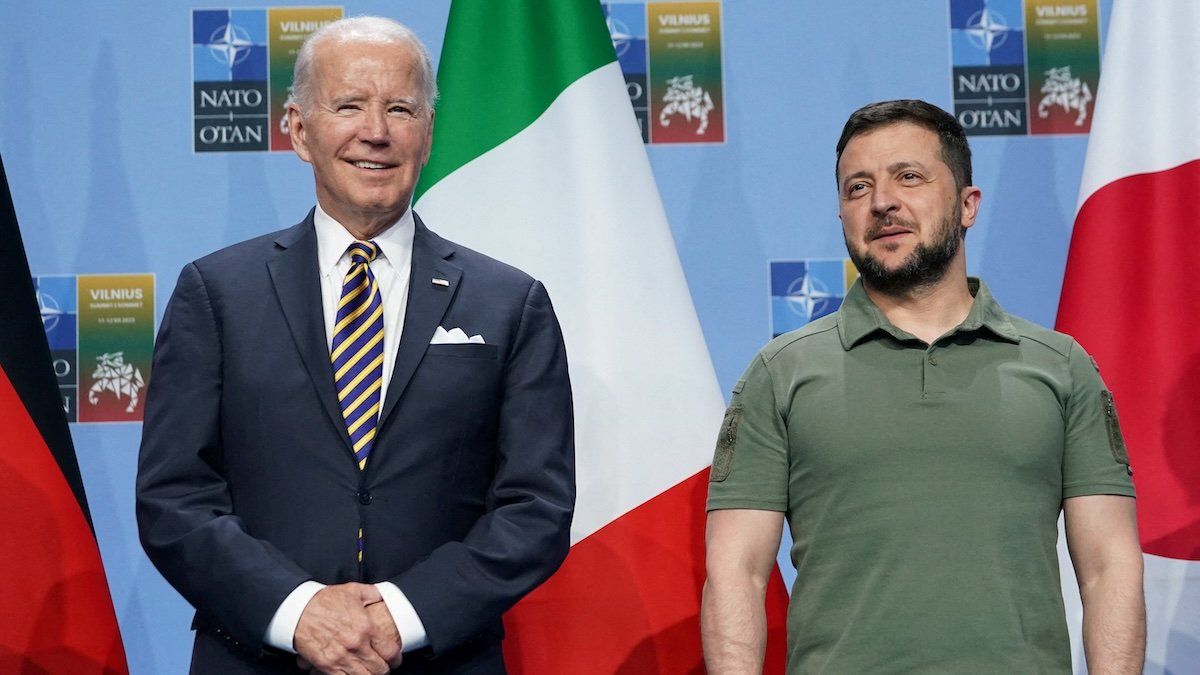US President Joe Biden is on the beaches of Normandy today, marking 80 years since the US-led D-Day invasion, which helped liberate Western Europe from the Nazis.
In two separate speeches, Biden will argue that democracy is once again under threat – at home from Donald Trump and abroad from authoritarians on the march. America, he’ll say, must continue to use its power to defend democracies today, so it’s small wonder that he’ll meet with Ukrainian President Volodymyr Zelensky as part of the festivities.
But are US allies confident Washington would really defend them? No, says a new poll by the Institute for Global Affairs, a non-profit study organization founded by Eurasia Group President Ian Bremmer.
Their latest report on “The New Atlanticism” reveals that just 6% of Western Europeans think the US is “very credible” as a guarantor of European security over the next decade. That partly explains why a majority also want Europe to take primary responsibility for its own security and move toward a more “neutral” relationship with the US.
The whole report is worth reading: It shows widening transatlantic differences over many issues, including democracy, immigration, the rise of China, and more. Check it out here.
